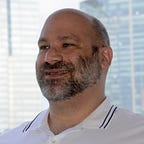PMI recently experienced a transition at the apex of its power structure, and so, this may be as good a time as any to address the topic. “Leadership” is complex. Styles of leadership range broadly, and an interminable fight rages regarding opinions on “good” versus “bad” leadership. Infrequently does the question arise until we are vexed overwhelmingly by crises of leadership by which time it is far too late to be recursive and reflective, many situations requiring crisis management. Possibly, the subject is receiving due attention now since so many crises seem to be so florid in so many arenas from politics to business to NGO.
At inflection points such as these, I normally engage in thought experiments from the lens of the Theater of the Possible: a much more vibrantly enthusiastic version of the ghosts who visited Ebenezer Scrooge. Now that we have a new leader, what could we do? That question – I personally believe – allows us wide latitude to dream about a world purposefully infused with project management throughout the fabric of society (though many will shudder at the thought.) It would be generally right about now when the shouting begins: we should review the lessons learned first, she should consider the risk register, is Agile going to gain prominence versus traditional methods? What – really – will be the face of PPM (or PMP) once the promulgation of AI is complete?
In my opinion, these more provincial concerns are less important than the following question: what does our profession want to be when it grows up? Now that we have been around for more than half a century, – more important than ‘what direction are we headed?’ – how do we become a system that is integrated into the systems integration process? As employers, connected devices, organizations, and information roll forward to become increasingly interlinked and simultaneously mutually disruptive, do we remain the arbiters of situations into which we have been inserted to simply manage the disruption? Or shall we become the definers of the situations themselves guiding our surrounding environment towards overall benefits realization? And, if it’s the second one, we will need to define a strategy for that which will in turn require execution. Within the context of our hyperconnected, always on, globalized professional network, do we have the wherewithal to view our various engagements holistically in order to generate opportunities to train, deploy, mentor, and grow successive generations of effective PMs, or do we not? Can we create strategic partnerships with the organizations that most require our skills to broaden our overall effect, or can we not? Just how much of that $2 Trillion (USD) in project waste per annum can we recapture?
As project professionals, we are daily required to lead: teams, projects, programs, departments, businesses, agencies, etc. One third of the talent triangle is dedicated to the development of leadership skills. At this stage in our collective evolution as a field, it is time to be more purposeful in our early instruction, and career-long development of leaders, and become definitional in what qualities such an individual might possess (these definitions are subject to change.) This will require us to look sternly in the mirror, and decide – as Michaelangelo did while carving David – to remove the pieces that are not the final sculpture. Or, seen another way, travel through our own change management adventure.
This sounds like a project. Sounds like a job for a #PMPatWork.
